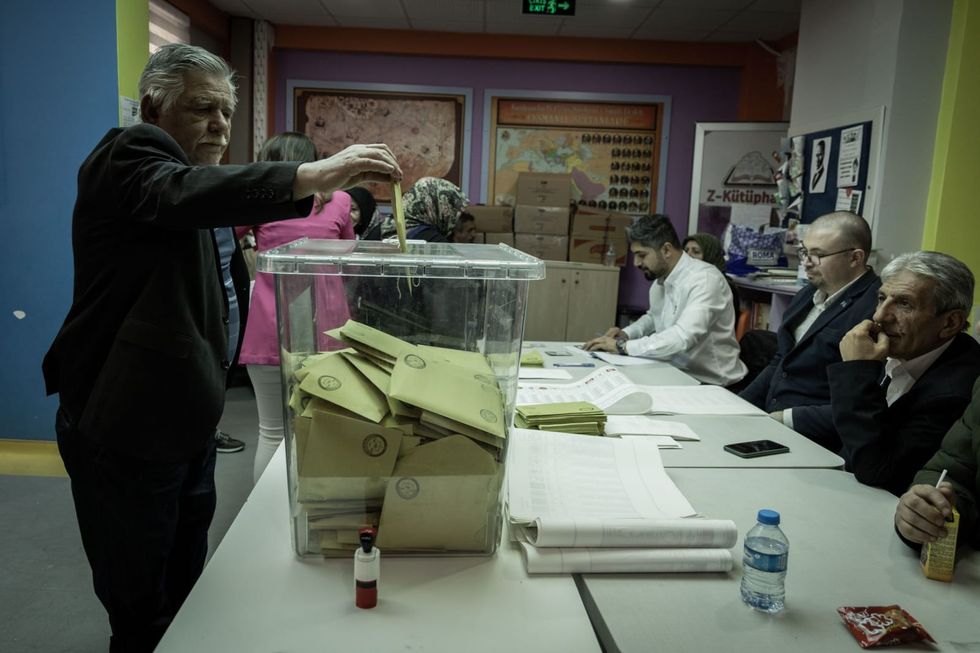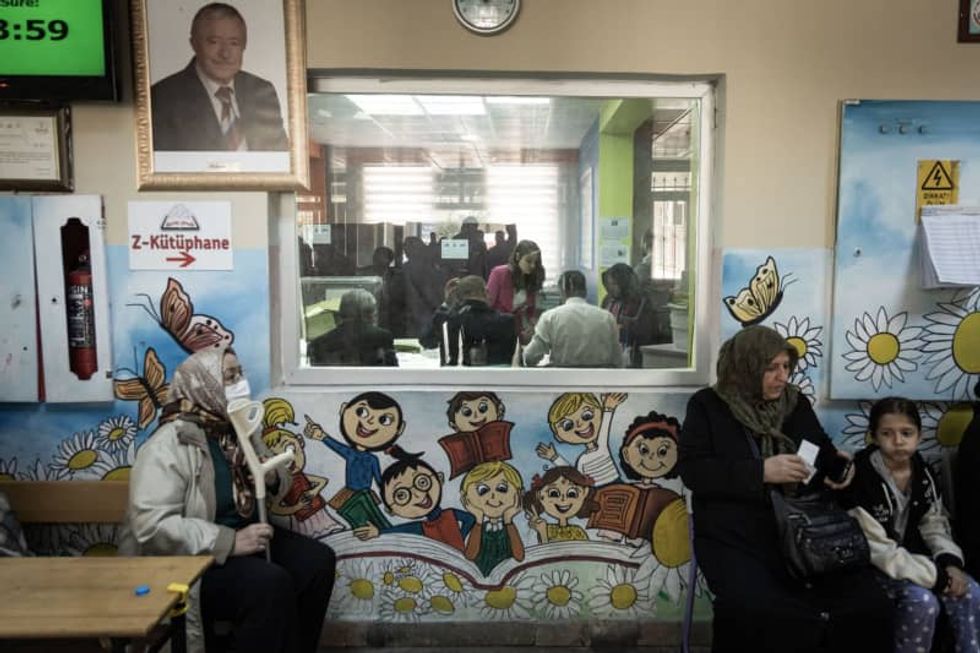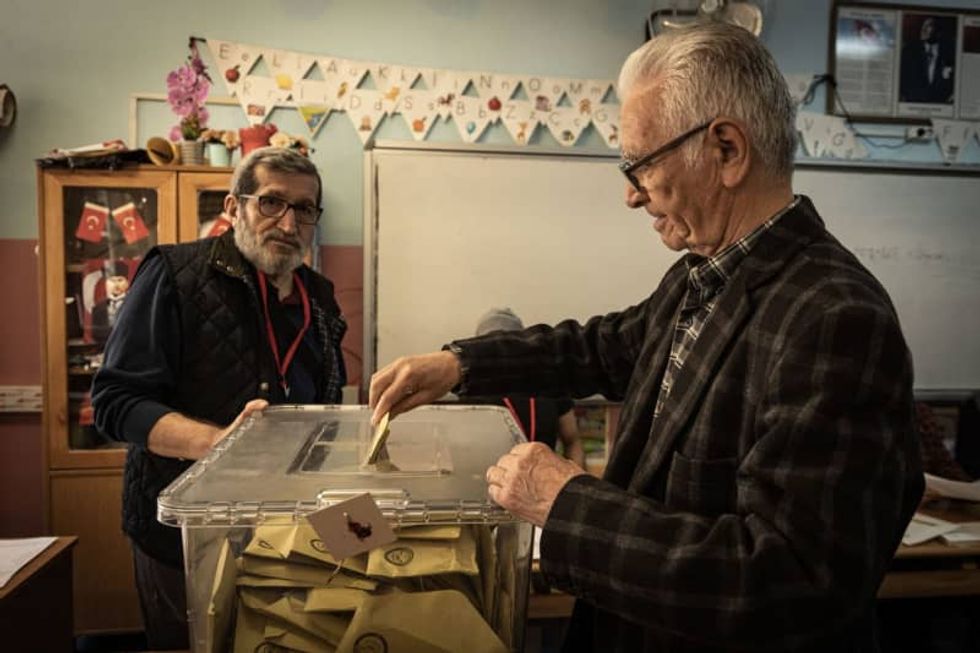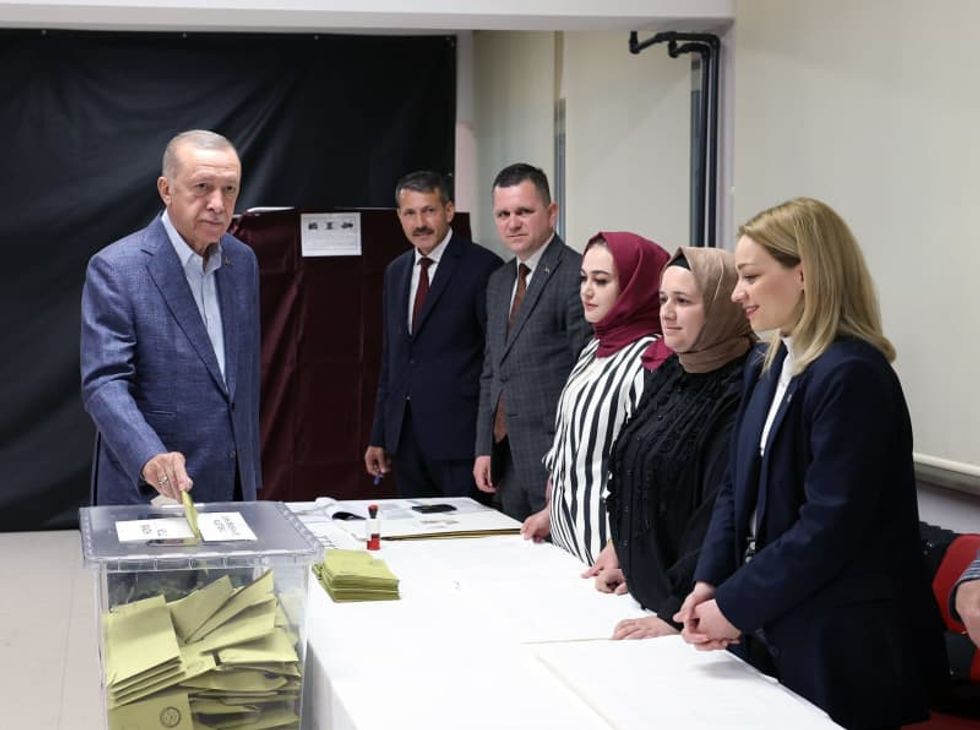
The first reliable results are expected later in the evening, after polling stations closed at 5 p.m. (1400 GMT) as planned.
Incumbent President Recep Tayyip Erdoğan said it was now time to "protect" the ballot box "until results are definite," tweeting shortly after polls closed that the voting process was "fit for our democracy."
Canan Kaftancıoğlu of the opposition CHP party, whose candidate Kemal Kılıçdaroğlu is the main threat to Erdoğan staying in office, said her party expects a record turnout.
In the last parliamentary and presidential elections in 2018, when Erdoğan won with 52.6%, 86.2% of eligible voters had cast their ballots. Back then, Erdoğan's AKP party won a parliamentary majority with the help of its ultra-nationalist partner, the MHP.
The head of the electoral authority YSK, Ahmet Yener, said Sunday's voting had taken place without problems.
Observers predict a neck-and-neck race between Erdoğan, who has ruled the country for more than 20 years, and his main challenger Kılıçdaroğlu who has the support of a camp of different opposition parties.
Yet it remains unclear if Sunday's vote will produce a winner with more than 50% of the votes or whether it will head to a second round on May 28.
The vote comes amid Turkey's worst economic crisis in two decades and February's devastating earthquakes in the country's east.
Observers have cited an unfair election campaign trail, with Erdoğan enjoying state resources and dominating the media landscape compared to the opposition's limited means.
The united opposition, a rare combination of secular, Islamic conservative and nationalist forces, seeks to convert Erdoğan's pious power base in the Anatolian heartland and end what they call his "autocratic" rule.
Throughout the campaign, Erdoğan showered the opposition with accusations ranging from alleged terrorism ties to degenerating youth and promoting a lesbian, gay, bisexual and transgender (LGBT) agenda to collaborating with foreign agents.
Erdoğan still promised a peaceful transition if he loses.
His main challenger Kılıçdaroğlu, on the other hand, urged calm, trying to appear as a man of common sense, often stressing his humble roots from a village near the eastern town of Tunceli.
Erdoğan has promised to quickly reconstruct the quake-hit provinces, boost defence and infrastructure investments and raise wages significantly if he wins.
Kılıçdaroğlu has pledged to overhaul Erdoğan's presidential style of government, ease the economic crisis, fight corruption and restore ties with Western allies.
In the first decade following a reformist Erdoğan's rise to power in 2002, Turkey has seen an economy boom, relations with the West improve and democratic standards relatively improve.
The president owed much of his success to aligning with millions of pious voters' resentment against such ultra-secular measures as a headscarf ban in the 1990s, and such loyalty has barely waned.
Observers, however, believe Erdoğan may have lost many in his ranks, due to rocketing inflation and diving buying power and public resentment at the around 3.5 million Syrian refugees living in Turkey.
Particularly since the 2013 anti-government Gezi protests, the key G20 and NATO country has been in constant turmoil, sliding into economic turbulence, seeing fundamental rights deteriorate and alienating Western allies at the cost of closing ranks with Russia.
This, followed by a failed military coup in 2016 and a switch to an executive presidency in 2018 that boosted Erdoğan's powers, led to the jailing of thousands more critics and the repression of free speech.
Turkey needs to invest more in democracy and return to EU membership talks, among others, or further slide into authoritarianism, former bureaucrat and secular politician Kılıçdaroğlu argues.







